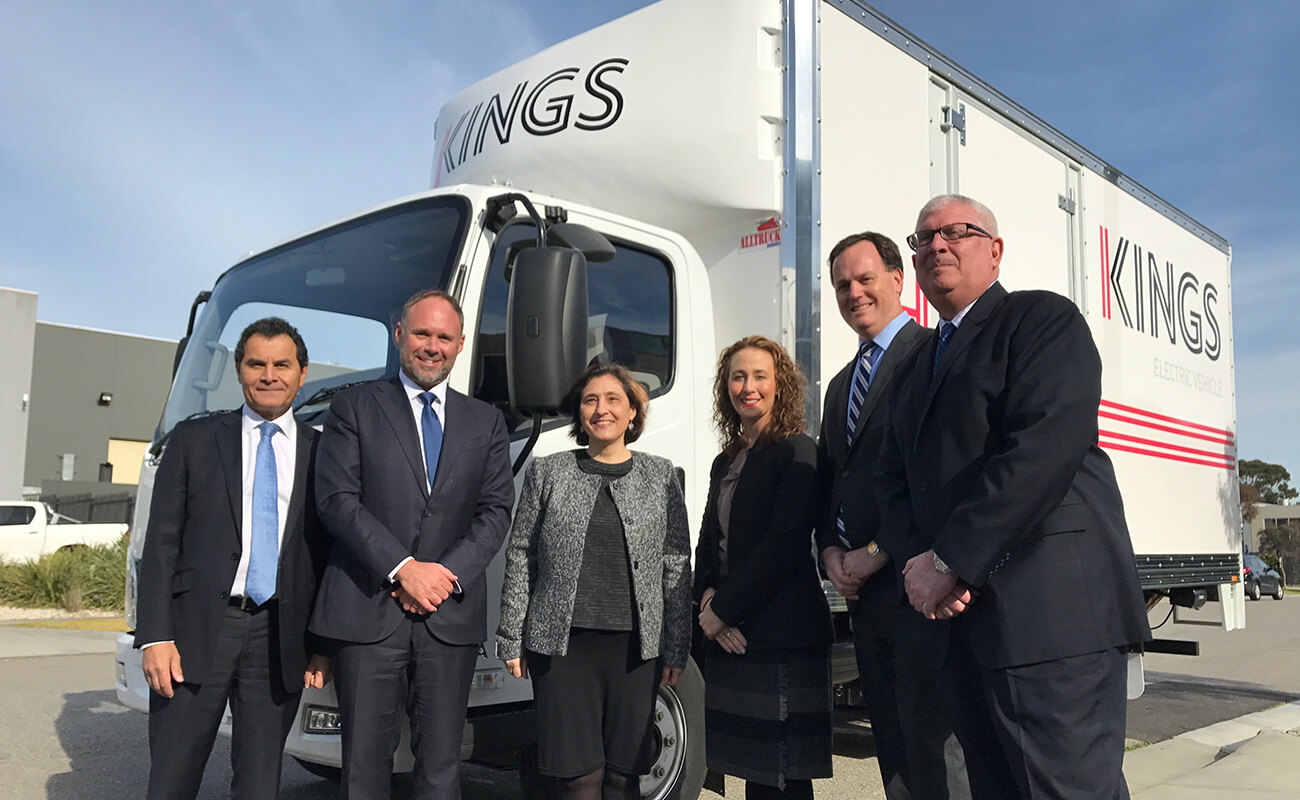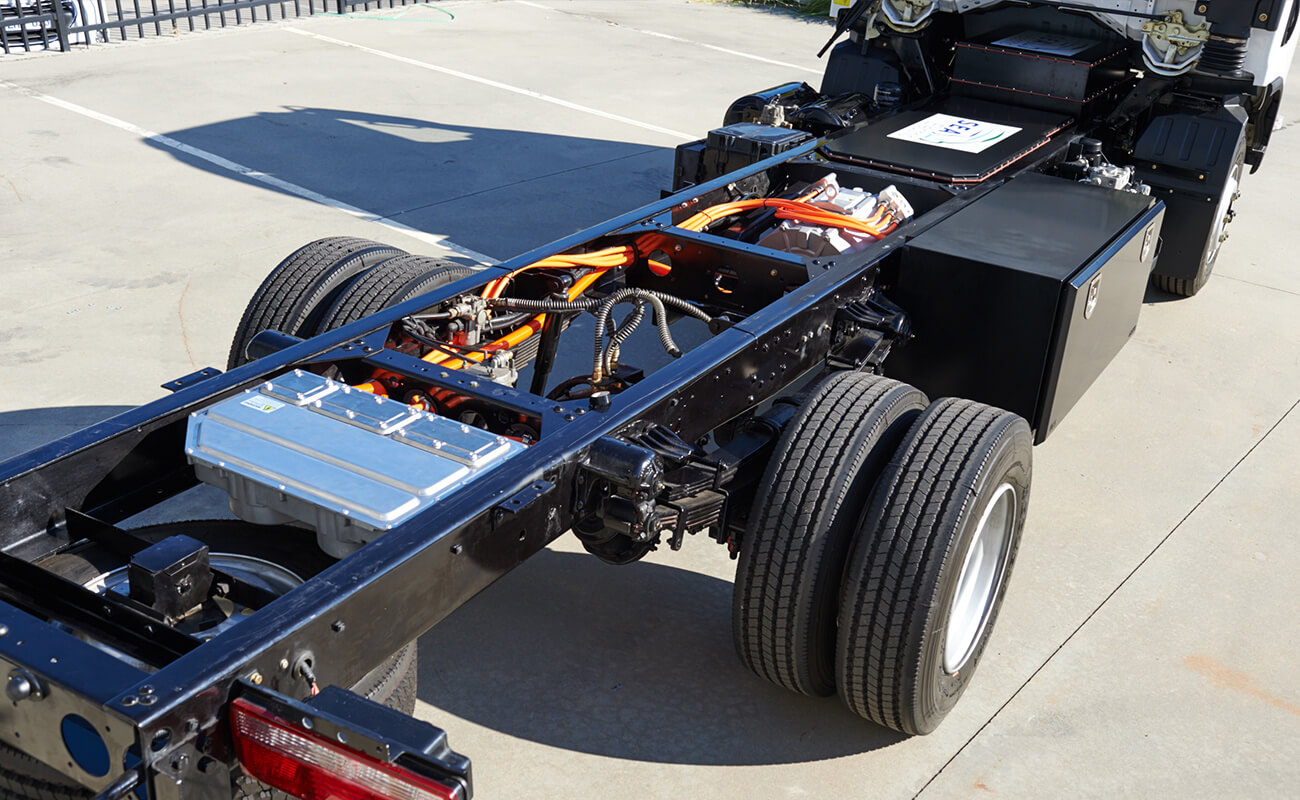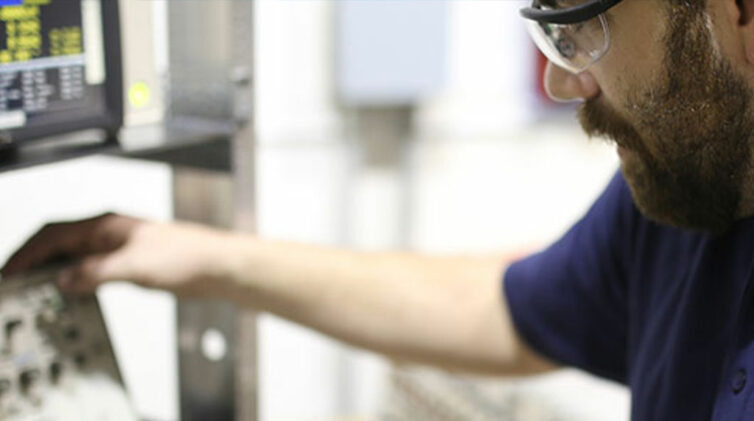It also plans to be a major supplier of EV drivetrains to three Australian truck companies within five years.
Yet surprisingly, Dandenong-based SEA Electric has been until now almost unknown within the car industry.
What triggered all the attention was an order for nine EV trucks from transport company, KINGS Transport. KINGS will operate city-based delivery vans powered by SEA’s electric motor and battery system.
SEA Electric’s business model is to import existing OEM trucks and vans, which arrive without the conventional engine and driveline under an exclusive licence. SEA Electric then installs its EV drivetrain and battery packs.
At present it is importing Chinese truck cab/chassis that are made in South Africa – a right-hand-drive market.
But SEA Electric has an agenda to expand its EV truck range to other truck brands as well as form agreements and sell its own drivetrain licences to other manufacturers.
SEA Electric executive chairman Tony Fairweather told GoAutoNews Premium he was travelling to the US and Mexico this week to speak to interested manufacturers of school busses and step-through delivery vans.
After the handover of the first of nine EV trucks bought by KINGS Transport in Melbourne last week, Mr Fairweather said that in the following 48 hours he had inquiries about possible licence assembly orders from two overseas manufacturers, one based in India and the other in the UK.

Just before the handover, SEA Electric had received a $500,000 grant from the Victorian Government’s new Energy Jobs Fund.
In Australia, Mr Fairweather said the company has a program underway on a 17-tonne Hino chassis – known as SEA GHEV – and will soon start another one with Iveco at Dandenong.
He said both products have substantial potential in both Australia and New Zealand for waste management applications.
“We are also in discussions with another Japanese manufacturer about their trucks for potential electrification,” he said.
Trucks supplied to KINGS and which form the basis of SEA’s vehicles for the future are built in South Africa by Chinese company FAW. They are supplied to SEA without drivetrains and because South Africa is already a right-hand-drive country, require minimal modifications.
Mr Fairweather said the vehicles will be available in three sizes, as ordered by KINGS – which chose three of the E4V (van) version, three of the EV10 (nine to 12-tonne, the first of which was handed to KINGS last week) and three of the EV14 (15-tonne).
“All the trucks will be used in Melbourne at this stage though it is possible they may be tested in other states by KINGS,” said Mr Fairweather.
He said there was strong indication that the transport company will order more vehicles.
The trucks and vans are sourced from two manufacturers, both originating in China.
“We have exclusive access to two cab-chassis models from a manufacturer in South Africa called FAW and a delivery van product out of a manufacturer in China called Golden Dragon,” Mr Fairweather said.

From left: KINGS Transport Chairman, George Savvides; SEA Electric Executive Chairman, Tony Fairweather; the Hon. Lily D’Ambrosio; Gabrielle Williams, State Member for Dandenong; SEA Electric Managing Director, Glenn Baird; and KINGS Transport CEO, Tony Mellick.
“They are essentially our introductory products, our low-cost cab chassis and vans that will get us to market and will bring us that economic and commercial viability we need to compete in the market.
“The core of our business is the technology of the drive system that we refer to as SEA-Drive.
“This technology that we we have developed for the van and the medium-duty and heavy-duty cab-chassis range is built so it is adaptable to any similar platform.”
Mr Fairweather said small delivery vans would become SEA Electric’s substantial high-volume business in the future. It would compete against low-cost diesel products but at the moment, the price of the EV would be more expensive than the diesels because of the price of the batteries.
“The gap for payback is much larger – around the six or seven years – so I think we are 18-months to two-years away from a true economic perspective on the E4V van,” he said.
“But we have a lot of interest from delivery van operators. It’s about the economics of that van before the cost of the batteries comes down to a point where we come under the important five-year payback.”
SEA Electric’s strategy is to ensure all vehicles have a 180km minimum range on one charge – which takes between four and six hours – to make it suitable for delivery work.
The company believes the first vans offered for sale would go to early adopters who want the latest technology in a delivery van.
In later years, when the battery price falls – and when Mr Fairweather said possible government incentives may be introduced – the EV vans would be economically viable against petrol or diesel rivals.

Mr Fairweather said the recent increase in interest in EVs was fuelled by greater scales of efficiency for battery manufacturing.
“Large OEM manufacturers are scrambling for EV technology because of the rapid increase in battery development,” he said.
“This positions SEA very well because we already have suppliers of components, we have the truck and van suppliers and we have established our head office in Melbourne with all the necessary technical strengths. The timing couldn’t be better.”
SEA Electric has 25 staff with substantial experience in commercial vehicles and electric drivetrains.
“We are also doing things a bit different in the design of the vehicles,” he said.
“Previously, the batteries were mounted on either side of the chassis to give better access. But this upsets the truck’s balance, weight transfer and the effects of side impacts.
“Our SEA-Drive technology is unique in that we position all the batteries between the chassis rails and typically in the same position where the engine and transmission were previously placed.
“So we retain the balance of the truck and original weight characteristics. We have also created a platform that uses some of the world’s best components rather than try and build these components ourselves.
“So we have motors and controllers from one of the world’s leading EV manufacturers in Canada who are producing volume and smart technology that is also well-priced.”
Mr Fairweather said companies who were doing similar work previously would not have had the benefit of the new wave of component suppliers available now.
“The timing of what we have done and developed and leveraged off our experience has put us in a very smart position,” he said.
“We have a couple of years head start so we’ll continue to optimise our products and improve as we increase volume.”
Mr Fairweather saw potential in the future to establish a dealer network but said it was important to first control the full supply chain.
“From an aftermarket perspective and a control perspective that would be ideal,” he said. “But as volume grows, there will be an opportunity to set up a dealer network.”
Manufacturing and assembling is expected to be maintained in Victoria where the SEA Electric kits would be installed into trucks and vans.
“The likelihood of us being asked – or even achieving – a 100 per cent Australian-made truck is not realistic,” he said.

“However, Iveco around the corner is made in Australia so us putting our platform into that, and then add a locally made waste compactor or a concrete mixer, would be primarily produced from Australian content.
“So our philosophy would be to partner with those manufacturers and get as much work as possible in Victoria.
“If we had volume in Perth, for example, we’d be prepared to look at setting up an assembly operation there or partnering with someone there who could assemble the vehicles. The same would apply to other states and overseas markets.”
Mr Fairweather said his company has discussions underway with its truck supplier FAW in South Africa and Golden Dragon in China about them taking licenses on SEA Electric’s technology.
“That would allow them to volume build for their domestic markets,” he said. “So we have a lot of activity going on. At the moment we are exploring other component manufacturers and partners.
“Within about five years, we expect to end up with three manufacturers of trucks that we will deal with in Victoria that will all be fitting our SEA-Drive systems.
“We’d like to see Iveco fit our systems to their own trucks in their Victorian factory. It would also be great to see a Japanese manufacturer electrifying their own products, also in Melbourne.
“With these opportunities, we think there is a chance for Victoria to take the lead in this EV space.
“It doesn’t mean we have to be manufacturing cars or trucks – it means we have to be in the technologies that go with EVs so that instead of importing our motors and controllers from overseas, it could be developed by a Victorian company not only for Australian use but for export.”
By Neil Dowling













 Read More: Related articles
Read More: Related articles

